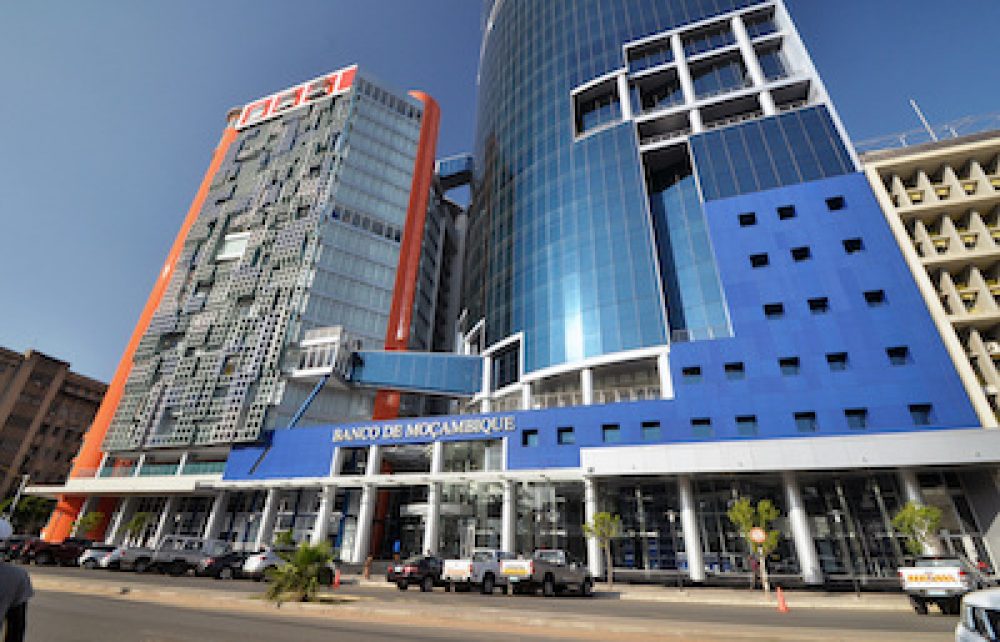Banking activity in Mozambique is set to remain ‘challenging’, due to the economic difficulties in the African country, according to a new report.
“Mozambique’s economic growth outlook is also likely to remain relatively subdued (possibly at 2-3%/year), making it more challenging for domestic banks to generate revenues and increasing the need to implement cost containment measures to secure adequate profitability levels”, Eaglestone Securities says in its report on the country’s banking sector.
The Mozambican banking sector faced an increasingly challenging macroeconomic environment in the last couple of years. Real GDP growth slowed to 2.3% in 2019 (from an average of 5% in the previous five years) and economic activity contracted -1.3% in 2020 mostly due to Covid-19.
Sub-Saharan Africa Recovery Slowed by Weak State of Public Finances
The central bank (Maputo headquarters pictured above) had to implement several measures aimed at mitigating the impact of the pandemic, including (1) the reduction in mandatory reserves in local and foreign currencies, (2) the decision in terms of monetary policy to cut reference interest rates, (3) the exemption of the requirement to build provisions on restructured loans associated with Covid-19 and (4) the reduction in banking commissions.
“Despite these efforts, the results of the domestic banking sector were clearly affected, as a weak operating performance and the need to significantly build loan impairments and other provisions impacted net profit”, the report says.
The operating performance of the six largest banks operating in the country showed that revenue growth remained almost flat in 2020, with a further decline in interest rates continuing to affect margins.
Overall, the combined net profit of the six largest banks fell by 16.6% YoY, reaching MZM 13,487 million (USD 180 million) in 2020. This net profit represents a ROE of 12.8% and a ROA of 2.08%.
According to Eaglestone Securities, fee income was impacted by some extraordinary measures adopted by the central bank to mitigate the impact of Covid-19. These included a temporary exemption and reduction of certain transaction fees on ATMs and POSs, as well as transactions made in digital channels. The double-digit increase in other banking income was largely due to a strong contribution in terms of operations in the foreign exchange market.
The report adds that costs expanded above the inflation rate once again in 2020. The evolution in costs was influenced by (1) larger investments implemented in the digitalization of the sector, (2) the impact from extraordinary expenditures and investments associated with the combat against the pandemic and (3) the depreciation of the Metical, as some costs are linked to foreign currency.




